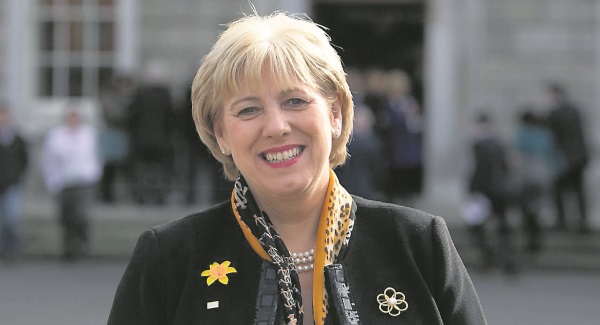A new Government plan to invest €10m in rural Irish towns needs to be at least 20 times bigger to make any real difference for recession-hit smaller communities, an opposition TD has warned, writes Fiachra Ó Cionnaith.
Independent TD for Roscommon-Galway East, Michael Fitzmaurice, made the claim after the badly needed ring-fenced funding was announced by Arts, Heritage, Regional, Rural and Gaeltacht Affairs Minister Heather Humphreys.
Under a long-awaited initiative to help rural Ireland recover from a near decade of an economic crash, Ms Humphreys has published plans to invest at least €10m in small towns and villages this year.

The money, which will be provided through the relevant local authorities, will be focussed on 200 specific communities where less than 10,000 people live – with the majority of funding going to villages with populations of less than 5,000 people.
Announcing the plans in Clones, Co Monaghan, yesterday, Ms Humphreys said the renewal scheme is needed “to begin breathing life back into our rural towns and villages”.
While accepting one funding initiative is not “the silver bullet” for tackling longer term economic problems in rural Ireland, the Fine Gael TD said the money available has been “more than doubled” from €4m last year and that up to 200 locations are set to benefit from the Government action.
However, despite the positive comments, Independent TD Mr Fitzmaurice heavily criticised the level of funding, saying it needs to be at least 20 times bigger in order to make any real difference to hard-hit communities.
The Roscommon-Galway East TD said the €10m fund in reality works out at just €380,000 per county, and that the money being made available is “not significant”.
“It’s ticking a box, basically saying, that look it, we have done this trying to get the rural regeneration off. To be quite frank about it you would want 20 times that if you were to make an effort in regenerating parts of rural Ireland,” he said.
While the economic crisis caused havoc to all parts of Ireland, rural communities were among the worst affected due to the linked issues of joblessness and emigration.
Addressing the issue was among the key points raised during the post-election Government negotiations earlier this year.


